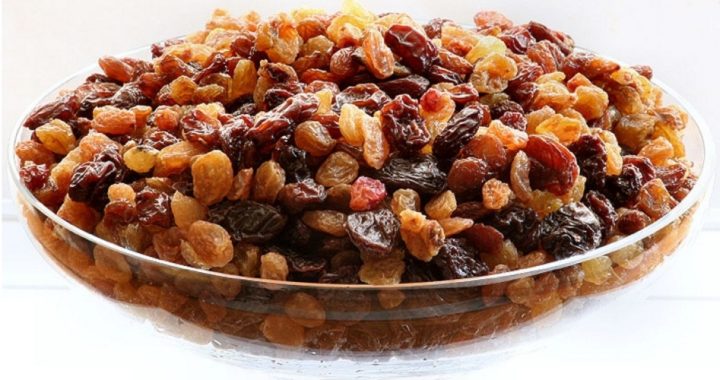
On Monday, in what National Review’s Carrie Severino called “a major victory for property rights,” the Supreme Court ruled that the federal government could not confiscate a farmer’s produce — in this case raisins — without just compensation, even if the confiscation could have some residual benefits for the farmer. Doing so, the court declared, is a violation of the Fifth Amendment’s takings clause.
At issue was the federal government’s Raisin Administrative Committee, a product of the 1937 Agricultural Marketing Agreement, a law that tried to reduce the supply of farm products on the market, thereby driving up their prices, at a time when millions of Americans were unemployed and starving — a sterling example of convoluted New Deal-era logic. The Raisin Administrative Committee, in its attempts to thwart market forces, can force growers to turn over a portion of their crops each year to the government, which can then dispose of them in any way it sees fit. If the dispossessed growers are lucky, the government, after subtracting its (undoubtedly excessive) expenses for administering the program, will turn a profit on the sale of these stolen products and return it to the growers.
In the 2002-2003 growing season, the committee required growers to give the government 47 percent of their raisin crops; the next season, 30 percent. In neither year did the proceeds from the sale of these raisins even approach the cost of producing them. In fact, in 2003-2004, growers got no compensation whatsoever for their stolen raisins.
The Horne family of Fresno, California, decided they wanted out of this racket and, in the words of the Wall Street Journal, “restructured [their] business to get around it.” Crop handlers — people who package and distribute crops — are the ones tasked with confiscating raisins for the government. By becoming their own crop handlers, the Hornes hoped to keep all the raisins they had grown.
They announced their intentions in a letter to the Raisin Administrative Committee and the secretary of agriculture, stating: “The Marketing Order Regulating Raisins has become a tool for grower bankruptcy, poverty and involuntary servitude…. We will not relinquish ownership of our crop. We put forth the money and effort to grow it, not the Raisin Administrative Committee. This is America, not a communist state.”
How wrong they were — at least until this week. The government sent a truck to seize the raisins from the farm, and when the Hornes still balked, the feds sent them a bill for $480,000 — the supposed market value of the crops they were withholding — plus another $200,000 in penalties.
The Hornes took the feds to court. In a series of rulings — one forced on it by the Supreme Court — the Ninth Circuit Court of Appeals variously held that the marketing order was perfectly constitutional, being just a condition for doing business in America; that while it may or may not have been constitutional, the Hornes had no alternative but to pay the fines and then appeal to the Court of Federal Claims; or that, again, the order was constitutional because the takings clause applies only to land, not personal property.
Fortunately, eight out of nine Supreme Court justices were capable of reading and applying the Fifth Amendment as written. The only dissenting opinion came from Justice Sonia Sotomayor, who seems to have bought the government’s argument that, as Severino put it, “being allowed to ‘keep the change’ after a third party disposed of nearly half the annual crop was equivalent to retaining full ownership of the literal fruit of one’s labors.”
The remaining justices would have none of it.
“The Takings Clause provides: ‘Nor shall private property be taken for public use, without just compensation,’” Chief Justice John Roberts wrote for the majority. “It protects ‘private property’ without any distinction between different types. The principle reflected in the Clause goes back at least 800 years to Magna Carta, which specifically protected agricultural crops from uncompensated takings.”
Roberts went on to cite not just the Magna Carta but also U.S. colonial-era laws prohibiting takings, noting that the takings clause was, according to St. George Tucker, “probably” adopted in response to uncompensated takings by both the British and Continental armies during the Revolutionary War. In addition, he referenced Supreme Court precedents finding that the taking of any type of property without just compensation is unconstitutional.
The raisin marketing order, Roberts argued, is simply a taking by another name. “The fact that the growers retain a contingent interest of indeterminate value does not mean there has been no physical taking, particularly since the value of the interest depends on the discretion of the taker, and may be worthless, as it was for one of the two years at issue here,” he wrote.
He also took issue with the government’s assertion that raisin growers unhappy with the order should “plant different crops” or sell their grapes for different uses. “‘Let them sell wine’ is probably not much more comforting to the raisin growers than similar retorts have been to others throughout history,” he remarked. Besides, he continued, the court rejected such arguments decades ago.
The majority opinion canceled the fines assessed against the Hornes. Three justices — Stephen Breyer, Ruth Bader Ginsburg, and Elena Kagan — while agreeing that the taking was unconstitutional, in a separate opinion concurred with the government that the case should once more be remanded to the Ninth Circuit to determine the just compensation due the plaintiffs. Roberts responded that the government had already determined the necessary compensation by declaring the market value of the raisins it wished to confiscate. “The Hornes should simply be relieved of the obligation to pay,” he said. “This case, in litigation for more than a decade, has gone on long enough.”
“No more will they take our raisins and not pay for them,” Marvin Horne told Reuters. “It’s been tough for us having this cloud over our heads. Now we have been vindicated.”
While the ruling is a victory for the Hornes and, to some degree, property rights, it must be noted that it is still somewhat narrow. It does not address the matter of takings by regulations; indeed, Roberts specifically pointed out that the raisin confiscation is considered an illegal taking not because it has an “economic impact on the grower” but because of the means used to effect it. A regulation accomplishing the same end by different means might well be considered constitutional by the court, as, for instance, in the case of Wickard v. Filburn (1942), in which the court upheld a fine against an Ohio farmer who had planted more wheat than the government had declared he could.
Still, any clear decision in favor of property rights and the plain meaning of the Constitution is worth celebrating. It’s also proof that raisin’ a ruckus over government overreach sometimes pays off.



